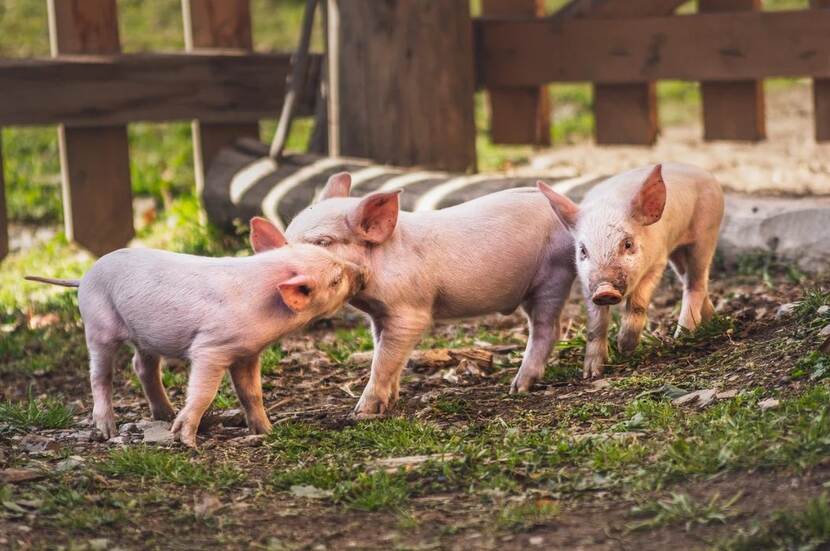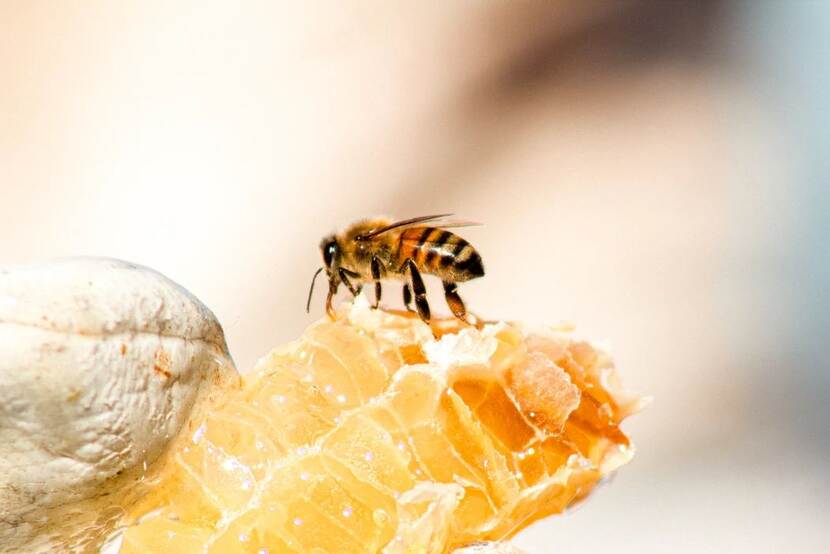Bulgaria Newsflash Week 8
The potential of Bulgarian pig farming, online food trade, EU funding in Bulgarian agriculture in the coming years and an online platform for notification of plant protection and disinfection operations: the news in Bulgarian agriculture in a nutshell.

Bulgarian pig breeding has a potential to recover by the end of 2022
but a number of measures need to be taken for this to happen, according to the analysts of the independent consultancy group InteliAgro. Industrial pig breeding in Bulgaria was on a track to fast development in the past ten years. With an annual output increase of 8 per cent, its share on the domestic market reached 37% in 2018 and was set to go up to 42% in 2019 and 49% in 2020, if it were not for the blow it took from an African swine fever outbreak which threw the sector back to the 2014 levels.
Pig farming has a potential to return to the pre-crisis levels by the end of 2022 and continue to grow despite the challenges. Such growth can be driven by strong domestic demand and government support – if it remains until the end of the current programming period or longer.
The study was done with support from the Embassy of the Netherlands in Bulgaria. A full English-language version of the report is coming soon.

Online food sales in Bulgaria have increase by over 100%.
The past 2020 was a turning point in online trade in Bulgaria and the entire sector saw a 9% growth, Zhanet Naydenova, President of the Bulgarian E-Commerce Association (BEA), said in a Bloomberg TV Bulgaria interview. The trend is expected to persist in 2021. The share of e-commerce in the national economy is increasing, with the increase reaching as much as 100% in some sectors as is the case with food retailers. “For long years, supermarkets invested in infrastructure, human resources and logistics. The pandemic showed that this investment was needed to enable them to meet growing demand,” Naydenova said.
Experts explain that automation and artificial intelligence will drive the development of this sector in Bulgaria. To improve their sales, Bulgarian retailers need to make constant investment in innovation to improve customer service, become more flexible and recognizable, and streamline their management and business processes.
In 2021, EUR 458 million from the Rural Development Programme (RDP) will go to the agriculture sector, young farmers and small farms
said the Agriculture Ministry. The decision was made at a video conference of the RDP Monitoring Committee. It also voted Bulgaria’s budget for the transitional period: close to EUR 887 million for RDP for 2021 and 2022, according to the CAP Transitional Regulation. Some EUR 685 million will come from the investment and compensatory measures in RDP in support of farmers. Another EUR 202 million will be available through various other RDP measures, including the NextGenerationEU recovery instrument.
The Monitoring Committee also decided to redirect another EUR 31 million under RDP’s Measure 19, Community-Led Local Development.
The CAP trialogue is expected to end by mid-2021, bringing clarity about the funding that will be available for Bulgarian farmers
According to Agriculture Minister Dessislava Taneva, quoted by Agri.bg, the post-2022 challenge for Bulgaria will be to turn to greener farming practices without losing farmer income and competitiveness.
During the trialogue among the EP, the EC and the European Council, Bulgaria has called for harmonizing payments per hectare across Member States (external convergence) while keeping a coupled support of 13+2% in the direct payments package, as is the decision of the Council (and not the MEPs’ proposal, which is for 10+2%). Disagreements also remain with regard to the transitional national aid and the share of the direct payments package that will have to be set aside for greening of agricultural policies.

Each Bulgarian beekeeper should have access to Internet, a computer or at least a mobile phone
to get alerts every time pesticides and insecticides are about to be applied in the region where they have their beehives. “Beginning March 1, 2021, the notification by crop farmers of upcoming application of plant protection products will be done only on an electronic platform,” said the Bulgarian Food Safety Agency. Now the notification is done by mayors and the local news media, and beekeepers often complain that pesticide application without notice destroys their beehives.
The platform will generate and send out phone and e-mail messages to notify beekeepers about upcoming pesticide or insecticide applications.
So far some 4,000 out of a total of 13,000 registered beekeepers have signed up with the notification platform. Registration is advisable. It remains unclear how beekeepers in regions with poor or no Internet and cell phone coverage will be notified of upcoming pesticide applications. This is the case in many villages in the southern and southeastern regions of Strandzha, Sakar and Rhodopi, where beekeepers produce unique honey, including the Strandzha honeydew honey which is on the EU list of protected designations of origin.